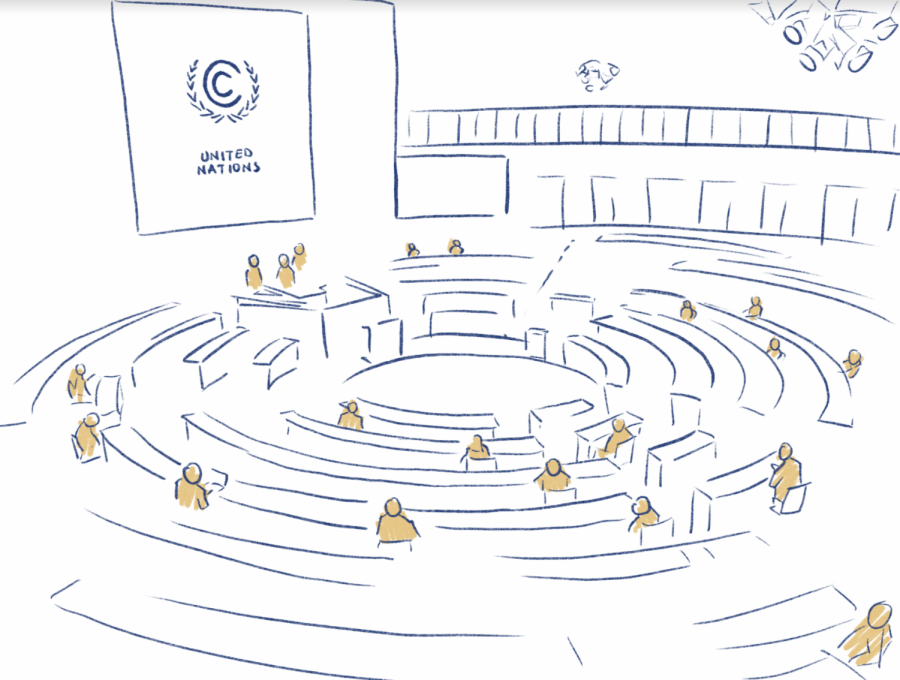26th UN Climate Conference
October 30, 2021
Over the last century, variations of the warning, “Twelve years until climate change is irreversible” has become widespread. This phrase’s popularity in the news and social media has brought a lot of attention to climate change. However, where does this idea of twelve years really come from, and has this timeline changed over the last couple of years?
These questions are what world leaders are attempting to resolve at the 26th United Nations Climate Change Conference, (UNCOP26) which will run from October 31 to November 21, 2021 in Glasgow, Scotland. Although the attendee list has not yet been released, an estimated 190 world leaders and government officials are expected at the conference to reach an agreement on how to tackle climate change.
Coming out of a pandemic, many see this conference as critical in the context of climate change, and are optimistic that drastic but necessary changes will be made. Donovan Boros ’23 shared with the Register Forum, “It’s solid evidence that if we had actually focused more on cutting emissions, and made a rapid change, we could cut emissions quickly.”
This year’s climate conference has a particular urgency, though. Following the COP21 conference that took place in Paris in 2015, every country unanimously agreed to work together to limit global warming and aim to keep the temperature fluctuation no higher than 1.5 degrees Celsius. Every five years, delegates agreed to return with updates. Delayed by a year because of the pandemic, Glasgow will be the conference where countries will update their plans for reducing emissions.
Some of the more pronounced goals of the conference include securing a net global carbon emission of zero by mid-century and keeping the 1.5 oC margin within reach. For this, countries will need to accelerate their phase-out of coal industries and encourage investment in renewables. Countries will also look to more strictly implement their aim of raising at least $100 billion in climate change finance per year. Finally, countries will work to accelerate collaboration between government, businesses, and civil activity.
With this in mind, scientists point out that to reach the 1.5 degrees Celsius target, countries worldwide would need to reduce
their emissions by at least 45% by 2030. U.K president of COP26, Alok Sharma, in an interview with The Washington Post, admitted “COP26 will not achieve what we want for pollutants, but as host of the summit we have to record successes in other areas, such as coal abandonment, funding for climate protection from rich to poor countries, and forest protection.”
So how far are we on the twelve year scale? Realistically, scientists think twelve years is too short notice for groundbreaking change. Still, it helps stimulate ambitions and solutions for new ideas. Julliette Coley ’24 told the Register Forum, “People have to be resilient and find ways to help their dying environment.”
This article also appears in our October 2021 print edition.










